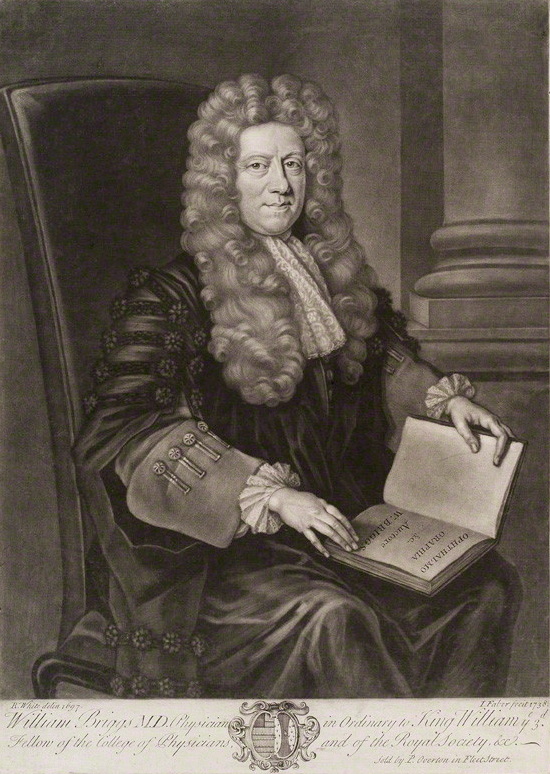William Briggs (physician) on:
[Wikipedia]
[Google]
[Amazon]
 William Briggs (1642 – 4 September 1704) was an English physician and oculist.
William Briggs (1642 – 4 September 1704) was an English physician and oculist.
 William Briggs (1642 – 4 September 1704) was an English physician and oculist.
William Briggs (1642 – 4 September 1704) was an English physician and oculist.
Life
Briggs was born at Norwich, for which city his father, Augustine Briggs, was four times MP. Following schooling at Norwich School he was entered atCorpus Christi College, Cambridge
Corpus Christi College (full name: "The College of Corpus Christi and the Blessed Virgin Mary", often shortened to "Corpus"), is a constituent college of the University of Cambridge. From the late 14th century through to the early 19th century ...
at age thirteen, under Thomas Tenison. He became a fellow of his college in 1668, and graduated M.A. in 1670. After some years spent in tuition and in studying medicine, he went to France and attended the lectures of Raymond Vieussens
Raymond Vieussens (ca. 1635 – 16 August 1715) was a French anatomist from Le Vigan. There is uncertainty regarding the exact year of Vieussens birth, with some sources placing it as late as 1641.
He studied medicine at the University of Montpe ...
at Montpellier
Montpellier (, , ; oc, Montpelhièr ) is a city in southern France near the Mediterranean Sea. One of the largest urban centres in the region of Occitania (administrative region), Occitania, Montpellier is the prefecture of the Departments of ...
, under the patronage of Ralph Montagu
Ralph Montagu, 1st Duke of Montagu (24 December 1638 – 9 March 1709) was an English courtier and diplomat.
Background
Ralph Montagu was the second son of Edward Montagu, 2nd Baron Montagu of Boughton (1616–1684), and Anne Winwood, daughte ...
(afterwards Duke of Montagu), then British ambassador to France. To him Briggs dedicated his ''Ophthalmographia'', an anatomical description of the eye, published at Cambridge in 1676, on his return from France. He proceeded M.D. at Cambridge in 1677, and was elected a fellow of the London College of Physicians
The Royal College of Physicians (RCP) is a British professional membership body dedicated to improving the practice of medicine, chiefly through the accreditation of physicians by examination. Founded by royal charter from King Henry VIII in 1 ...
in 1682. In the latter year the first part of his ''Theory of Vision'' was published by Robert Hooke
Robert Hooke FRS (; 18 July 16353 March 1703) was an English polymath active as a scientist, natural philosopher and architect, who is credited to be one of two scientists to discover microorganisms in 1665 using a compound microscope that ...
(''Philosophical Collections'', No. 6, p. 167); the second part was published in the ''Philosophical Transactions
''Philosophical Transactions of the Royal Society'' is a scientific journal published by the Royal Society. In its earliest days, it was a private venture of the Royal Society's secretary. It was established in 1665, making it the first journa ...
'' in 1683. The ''Theory of Vision'' was translated into Latin, and published in 1685 by desire of Sir Isaac Newton, who wrote a commendatory preface to it, acknowledging the benefit he had derived from Briggs's anatomical skill and knowledge. A second edition of the ''Ophthalmographia'' was published in 1687. Several points in Briggs's account of the eye are noteworthy, one being his recognition of the retina as an expansion in which the fibres of the optic nerve are spread out ; another, his laying emphasis upon the hypothesis of vibrations as an explanation of the phenomena of nervous action. Briggs practised with great success in London, especially in diseases of the eye ; was physician to St. Thomas's Hospital
St Thomas' Hospital is a large NHS teaching hospital in Central London, England. It is one of the institutions that compose the King's Health Partners, an academic health science centre. Administratively part of the Guy's and St Thomas' NHS Fo ...
1682–9, physician in ordinary to William III of England from 1696, and censor of the College of Physicians in 1685, 1686, 1692. In 1689, according to a curious memorial on one sheet preserved in the British Museum, Dr. Briggs was at great expense in vindicating the title of the crown to St. Thomas's Hospital, but was himself dismissed from his post, owing, as he states, to the machinations of a rival physician. From the same sheet we learn that, although he attended the royal household with great zeal for five years, he could get no pay ; and notwithstanding that in 1698 William III promised that he should be considered, this was of no avail. In consequence of these circumstances, apparently early in Anne's reign, he begs for consideration in regard to the hospital appointment. He died on 4 September 1704, at Town Malling in Kent. His son, Henry Briggs, chaplain to George II, and rector of Holt, Norfolk, erected a cenotaph to his father's memory in Holt church in 1737. The inscription is quoted by Munk.
References
Bibliography
* {{DEFAULTSORT:Briggs, William 1642 births 1704 deaths Medical doctors from Norwich 18th-century English medical doctors 17th-century English medical doctors Oculists People educated at Norwich School Alumni of Corpus Christi College, Cambridge Physicians-in-Ordinary